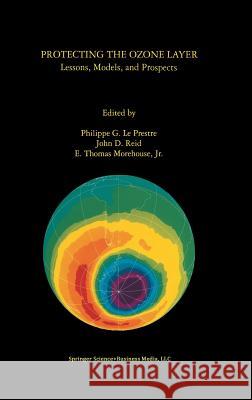Protecting the Ozone Layer: Lessons, Models, and Prospects » książka
Protecting the Ozone Layer: Lessons, Models, and Prospects
ISBN-13: 9780792382454 / Angielski / Twarda / 1998 / 232 str.
Protecting the Ozone Layer: Lessons, Models, and Prospects Since the mid-1980s, the international community has adopted several significant instruments designed to reverse the degradation of the life support systems of the planet. None of these international agreements have been as successful as the 1987 Montreal Protocol in creating the incentives and mechanisms for protecting the ozone layer. Through the efforts of industry, government and public interest groups, national commitments and achievements have progressed further and faster than expected, while the list of controlled chemicals has expanded. Now in its second decade, the Protocol enters a crucial phase of its implementation.
Protecting the Ozone Layer: Lessons, Models, and Prospects presents a wealth of information about the scientific, legal-political, and technological hurdles that we will have to overcome if humanity is to reverse its self-destructive course. The technology section in particular should appeal to industries affected by ozone layer protection as well as those affected by climate protection, since this is the first ozone publication featuring insights by the companies that spearheaded the major technological breakthroughs.
Every initiative to improve the environmental performance of industry has been accompanied by pronouncements of economic devastation, from acid rain to auto emissions standards, from auto mileage improvements to the protection of the ozone layer. Each new initiative brought claims from industry that this situation was different, yet none of their predictions have come true. At a time when industry fights efforts to protect the environment, the ozone experience shows both how technical breakthroughs have enabled environmental protection policies to work in the past and how they will work again in the future.
Protecting the Ozone Layer: Lessons, Models, and Prospects is the product of a Colloquium that was organized in September 1997 to celebrate the tenth anniversary of the Montreal Protocol. Contributions have been gathered from researchers and practitioners in the field, including some of the very same scientists whose work awakened the international community to the seriousness of the danger that humanity now faces. Other contributors include the scholars and diplomats who wrote and negotiated the text of the Protocol and its amendments, and the key figures who have been influential in convincing industry to support the process.











